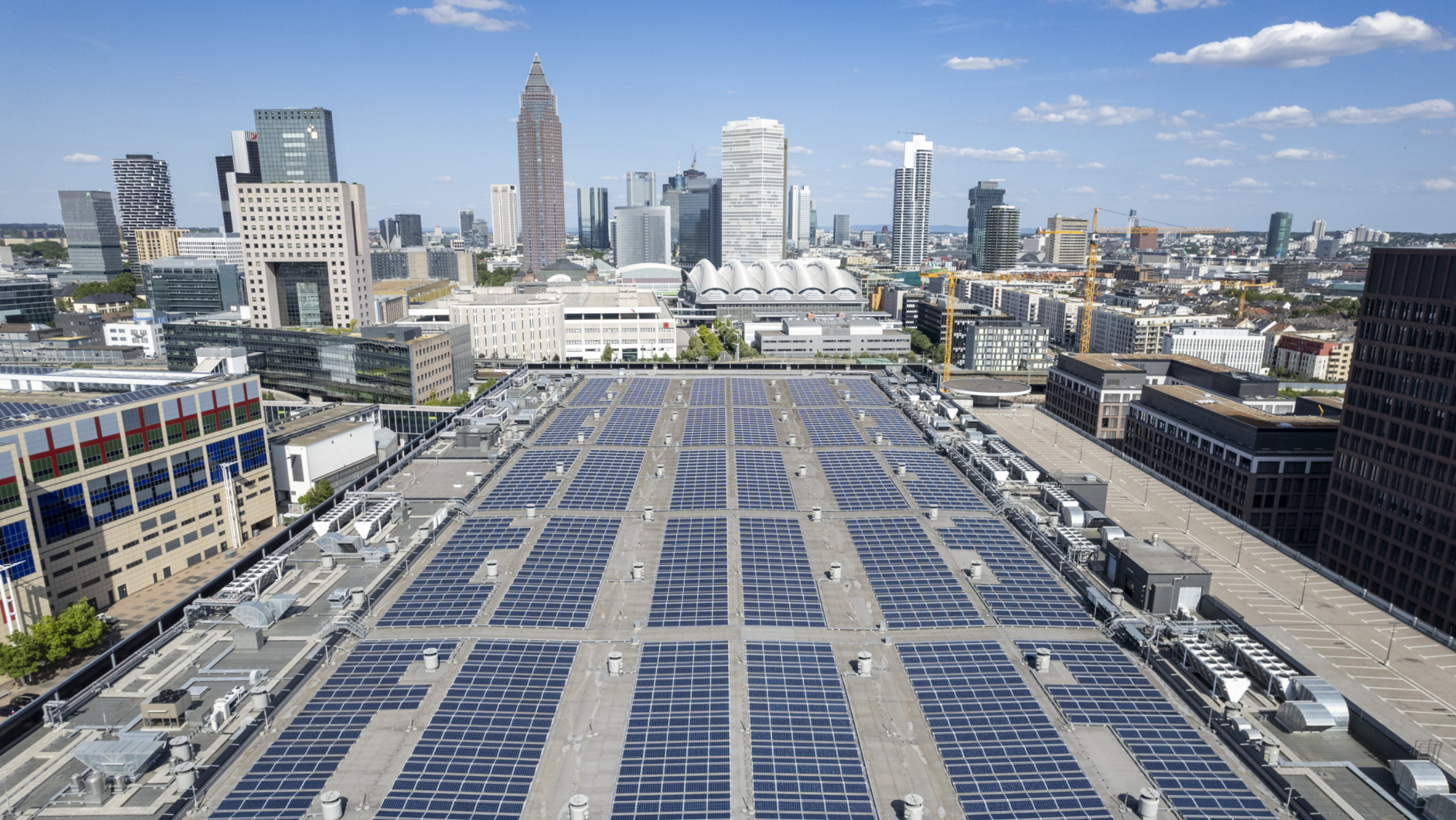In the past 14 months since Messe Frankfurt decided of its own accord to introduce the EMAS environmental management system, our company has held around 100 workshops and coordination meetings with teams from various parts of the Group. The main aim here was to determine the environmental impact of our business and then to define targets for reducing our ecological footprint.
These environmental targets (see below) were set for our Frankfurt base and apply for Messe Frankfurt GmbH, Exhibition and Venue, Messe Frankfurt Medien und Service GmbH and Accente Gastronomie Service GmbH. Our company has set out the targets in a document to be submitted to the auditor. Together with our service provider Econius, who has been assisting us with our EMAS activities, we were also able to draw up further documents: a manual, an environmental status report, an environmental programme and an environmental statement. On attaining the certification, we will publish the environmental statement on our website as evidence of our work.
After already carrying out an internal audit – as a test for the actual audit – Messe Frankfurt made the acquaintance of our auditor, Lennart Schleicher, a few weeks ago at the external pre-audit. Now, during the main audit over the next four days, he will hold numerous meetings with top management and our EMAS officers and gain greater insight into our company. He will examine to what extent the environmental regulations have been complied with, gauge the environmental impact of our business and examine the data situation in the environmental management system. Finally, he will identify potential for improvement and undertake the validation. If everything remains on schedule, the main audit will end on the final day with the presentation of the certificate to our Executive Board by IHK President Ulrich Caspar.
For our President and Chief Executive Officer (CEO) Wolfgang Marzin, the objective of EMAS certification is clear: “We decided of our own accord to introduce the environmental management system EMAS. Thanks to EMAS, we now have valuable base data for our many sustainability activities and improve our target architecture at the same time. With a clear mission: to get closer and closer to our environmental targets and to usher in the transformation to a sustainable trade fair sector.

Our EMAS environmental targets
As you know, our company's main goal is to be climate-neutral at our Frankfurt base by 2040 at the latest. We see this as attaining greenhouse gas neutrality and establishing a sustainable water management system. And now – in the context of EMAS – we can be more specific: in formulating environmental targets for the EMAS audit, the individual departments show the route Messe Frankfurt needs to take to achieve our goals. The following targets have been set:
Qualitative targets for the departments
End of 2024
To update and digitise our land register for green areas |
To investigate the possibility of using climate-neutral fuels for bus shuttles |
End of 2026
To assess service providers based on environmental and sustainability criteria |
To expand data on stand construction and map material flows |
To develop a concept for reducing water consumption or using water for hygiene flushing |
Quantitative targets for the departments
End of 2024
| To switch 60% of the indoor banner material from main supplier Edel to “sustainable” |
End of 2025
To reduce basic electricity consumption by 10% compared with 2019 |
To reduce steam consumption by 20% compared with 2019 |
End of 2026
To reduce energy-related greenhouse gas emissions by sourcing green steam and gas |
To reduce greenhouse gas emissions from the Accente fleet by 10% compared with 2022 |
To reduce water consumption in the Torhaus by 10% compared with 2019 |
What happens next?
In the future, an internal and external environmental audit will be held every year to check that our company is meeting its targets. As well as this, we intend to set higher targets and gradually reduce our ecological footprint. At the same time, we will update and validate our environmental statement accordingly. A revalidation will then be scheduled after three years, where all relevant parts of the company will be audited again internally and externally.
